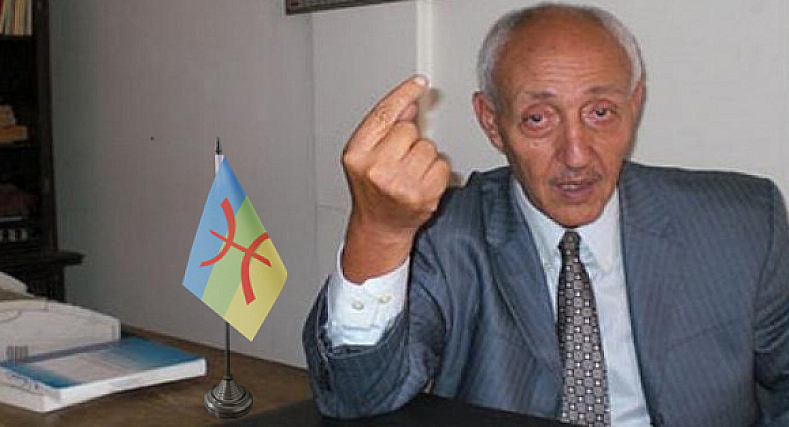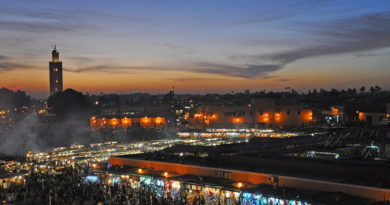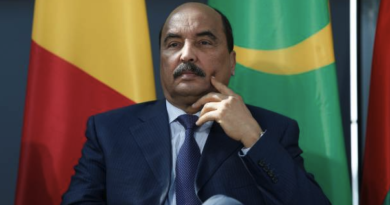Ahmed Adghirni: The Amazigh activist on the right side of history
Ahmed Adghirni, a Moroccan Amazigh activist and visionary, dedicated his life to defending the Amazigh language, culture, and identity. With an unwavering commitment to human rights, Adghirni challenged the Moroccan authorities and advocated for recognition and celebration of the Amazigh heritage.
As Morocco takes significant strides towards embracing its Amazigh roots and establishing normal relationships with Israel, Adghirni’s contributions and foresight prove to be on the right side of history.
Preserving Amazigh Heritage
Adghirni, born in the village of Tadart Aït Ali in 1947, was one of the first Moroccan activists who courageously fought for the preservation of the Amazigh language and culture. He recognized that Amazigh heritage is an integral part of Morocco’s rich diversity and sought to protect it from the threat of assimilation.
Adghirni’s relentless efforts laid the groundwork for the recent milestone achieved by Morocco – the recognition and celebration of Amazigh New Year, an occasion that reflects the nation’s commitment to embracing its multicultural identity.
When asked by Al Jazeera in an interview in 2005 about his main cause, he stated: “Our first issue is to preserve our existence against the factors of annihilation that threaten us. We are a nation distributed over 9 countries in Africa stretching from the Atlantic Ocean to the Niger River in Central Africa, the Nile River in Egypt, and the Mediterranean Sea in the North…. We are Africans who suffered from slavery, therefore our ancient ancestors were called free (Amazigh) and we must translate to all people the meaning of our existence”.
I want to be a firewood for mental ignition and intellectual debate as long as I am alive.
Ahmed Adghirni
Challenging the Status Quo
Adghirni’s activism was not limited to his home country. He played a vital role in founding the Amazigh World Congress, a global platform that brought together Amazigh civil non-governmental organizations. His international engagements served to highlight the Amazigh cause on a larger scale and facilitated cross-cultural dialogue.
Moreover, Adghirni’s forward-thinking approach extended beyond Amazigh issues. His bold stance on establishing normal relationships with Israel, as a means of fostering diplomacy and mutual understanding, was met with controversy.
However, recent developments have shown that his vision was indeed ahead of its time. Morocco’s decision to normalize relations with Israel underscores the importance of engaging in open dialogue and pursuing peace in the region.
A Legacy of Intellectual Controversy
Throughout his life, Adghirni faced criticism for his unwavering beliefs. Accusations of inciting discrimination and racism were launched against him. However, he steadfastly defended his positions, drawing inspiration from the sacrifices of previous generations who fought for their ideals.
He was famous for his bold positions on a number of human rights and political issues. He rejected the description of Morocco as an”Arab country”, the “guardianship” of the Middle East over the Maghreb region, and announced his visit to Israel more than once.
We are Africans who suffered from slavery, therefore our ancient ancestors were called free (Amazigh) and we must translate to all people the meaning of our existence.
Ahmed Adghirni
Adghirni’s profound words encapsulate the essence of his intellectual legacy: “I want to be a firewood for mental ignition and intellectual debate as long as I am alive.” His willingness to challenge the status quo, question ingrained beliefs, and ignite intellectual discourse has left an indelible mark on Morocco’s history.
Besides his positions, Adghirni left a dozens of publications among them: “The life of Ibn tumart and Abd al-Momen ibn Ali al-Kumi”, “Democratic government or rotational government”, “Moroccan elections and political parties”, “Social blocs in Morocco”, “Tears of the ogre” (short story collection), “The city of the end (novel), “The Amazigh movement in Morocco”, “International Amazigh conference in Morocco”, “Amazigh translation of Romeo and Juliet”. He also founded two newspapers, Tamazight and Amzday.
Late recognition
In the last years of his life, Adghirni participated in the “February 20” movement in 2011 and was also among the human rights voices that demanded the Moroccan authorities to release the Rif movement activists.
After his death on 19 October 2020, the Moroccan King sent a condolence letter to his family stating: “on this sad occasion, we express to you, and through you to all the bereaved families, relatives and friends, and to his large human rights family, our warmest condolences and sincere feelings of sympathy for the loss of a human rights activist, known for his professionalism, commitment to the nobility and honor of the legal profession and human rights issues.”



